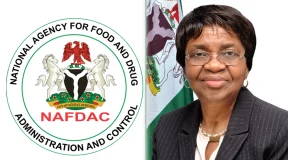Nigeria On ‘A Very High Risk Of Increased Lassa Fever
OpenLife Nigeria reports that the Nigeria Centre for Disease Control and Prevention (NCDC) has activated the national multisectoral Emergency Operations Centre for Lassa Fever (LF-EOC) at level 2 to coordinate and strengthen ongoing response activities in the country.
The LF-EOC was activated following a risk assessment carried out on the 20th of January 2023 by subject matter experts from the NCDC, relevant Ministries, Departments, and Agencies (MDAs), stakeholders and major partners.
The outcome of the risk assessment placed the country at a very high risk of increased Lassa fever transmission due to an unprecedented upward trend in the number of confirmed cases being reported compared to previous years; increased number of states reporting cases in comparison to previous years and increased risk of healthcare worker infections and deaths due to Lassa fever infection.
The situation report of 22nd January 2023, showed a total of 244 confirmed cases with 37 deaths and a case fatality rate of 15.1 % from 16 states and the FCT – Ondo (90), Edo (89), Bauchi (13), Taraba (10), Benue (9), Ebonyi (9), Nasarawa (7), Plateau (5), Kogi (4), Anambra (2), Delta (1), Oyo (1), Adamawa (1), Enugu (1), Imo (1), and FCT (1).
Infection and death among the healthcare workers accounted for 5 and 1 of the of the confirmed cases and deaths respectively highlighting the need for an increased index of suspicion among healthcare workers.
The purpose of EOC activation is to achieve a coordinated national response and especially across the affected states to interrupt disease transmission, reduce the impact of the disease by reducing suffering and death (morbidity and mortality), and other socioeconomic complications of this disease.
Healthcare is a collective responsibility of communities and governments at all levels. While the NCDC is mandated to lead the prevention, emergency preparedness, and response to public health emergencies, we rely on the cooperation and support of States in the development and implementation of evidence-driven outbreak response plans for their territories.
Prior to the activation of EOC, the Nigerian government through NCDC’s multisectoral Lassa Fever Technical Working Group (TWG) had put the following measures in place to respond to the rising cases of Lassa fever:
Support Lassa fever response management
The deployment of national rapid response teams (NRRT) to hotspot states to support contact tracing, case management, risk communication and community engagement, among others.
Development of a national Incident Action Plan (IAP) to ensure coordinated response at all levels.
Deployment of Surge staff for Lassa fever case management
Ahead of the projected rise of Lassa fever cases and as the country began to witness a rise in cases in the last week on November 2022, the NCDC prepositioned supplies for case management, infection prevention and control, laboratory diagnosis, etc. in all historical Lassa fever hotspots in the country. This was complemented by correspondence sent to the Honourable Commissioners of Health, the Nigerian Governors’ Forum, State Ministries of Health, and respective professional bodies of healthcare workers to alert and sensitize them on the situation as well as to advocate for in-State activities to respond to Lassa fever.
Source: Nigeria Centre for Disease Control and Prevention,NCDC







